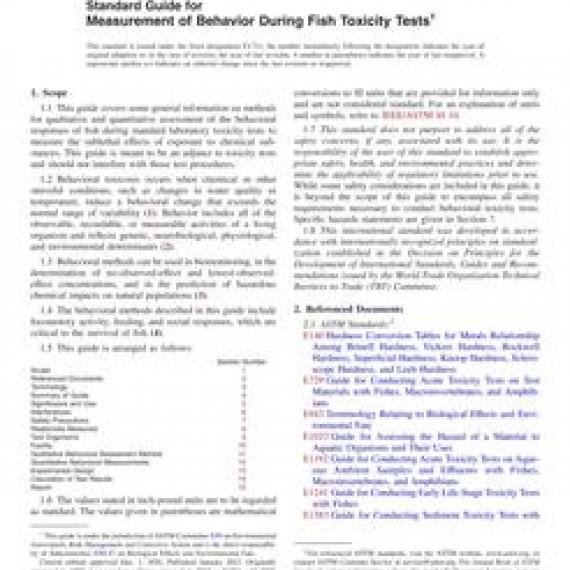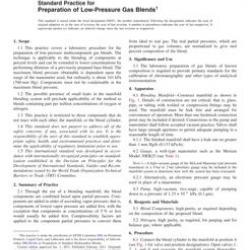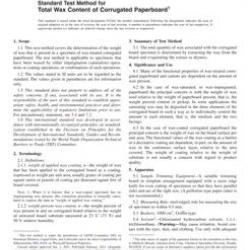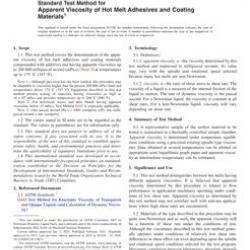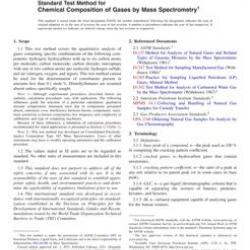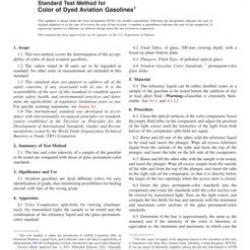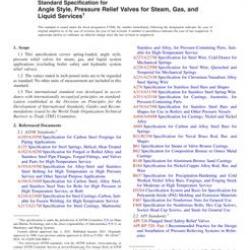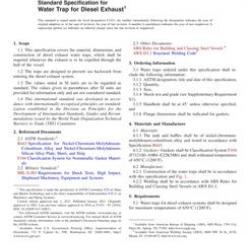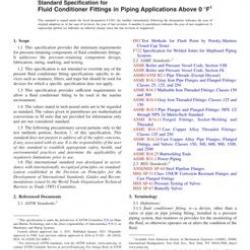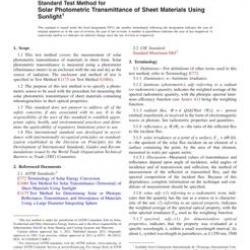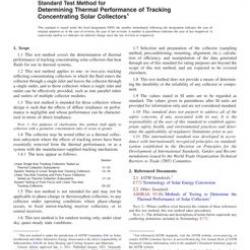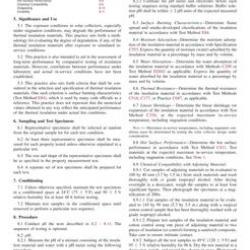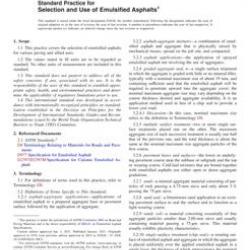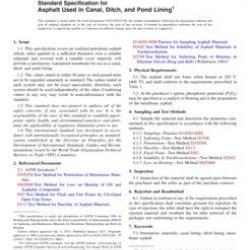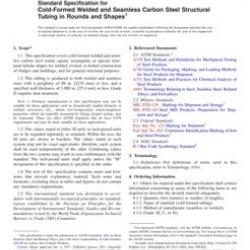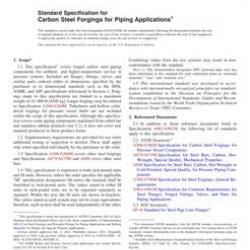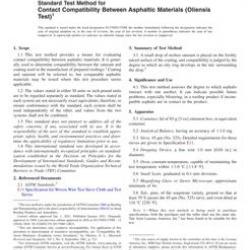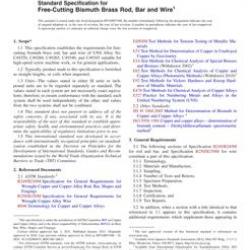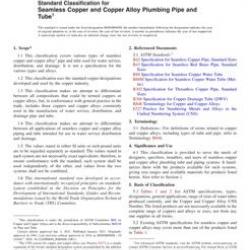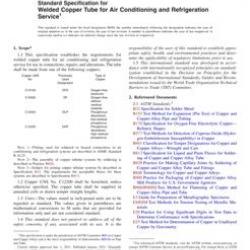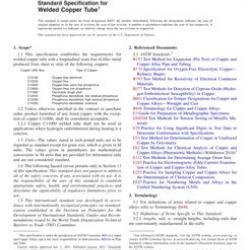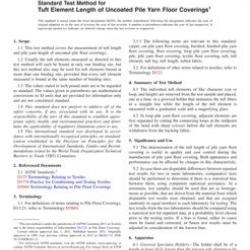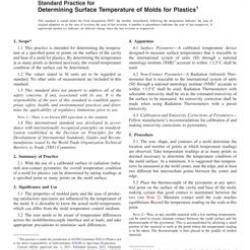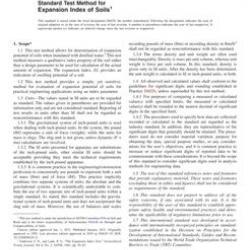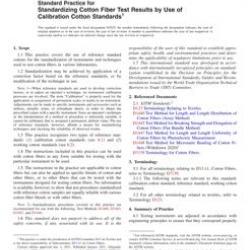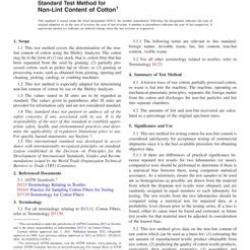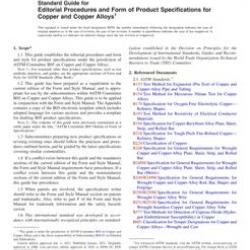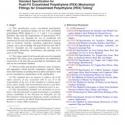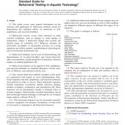No products
ASTM E1711-20
ASTM E1711-20 Standard Guide for Measurement of Behavior During Fish Toxicity Tests
standard by ASTM International, 12/01/2020
Full Description
1.1''This guide covers some general information on methods for qualitative and quantitative assessment of the behavioral responses of fish during standard laboratory toxicity tests to measure the sublethal effects of exposure to chemical substances. This guide is meant to be an adjunct to toxicity tests and should not interfere with those test procedures.
1.2''Behavioral toxicosis occurs when chemical or other stressful conditions, such as changes in water quality or temperature, induce a behavioral change that exceeds the normal range of variability (1). Behavior includes all of the observable, recordable, or measurable activities of a living organism and reflects genetic, neurobiological, physiological, and environmental determinants (2).
1.3''Behavioral methods can be used in biomonitoring, in the determination of no-observed-effect and lowest-observed-effect concentrations, and in the prediction of hazardous chemical impacts on natural populations (3).
1.4''The behavioral methods described in this guide include locomotory activity, feeding, and social responses, which are critical to the survival of fish (4).
1.5''This guide is arranged as follows:
| '' | Section Number |
| Scope | '''1 |
| Referenced Documents | '''2 |
| Terminology | '''3 |
| Summary of Guide | '''4 |
| Significance and Use | '''5 |
| Interferences | '''6 |
| Safety Precautions | '''7 |
| Responses Measured | '''8 |
| Test Organisms | '''9 |
| Facility | 10 |
| Qualitative Behavioral Assessment Method | 11 |
| Quantitative Behavioral Measurements | 12 |
| Experimental Design | 13 |
| Calculation of Test Results | 14 |
| Report | 15 |
1.6''The values stated in inch-pound units are to be regarded as standard. The values given in parentheses are mathematical conversions to SI units that are provided for information only and are not considered standard. For an explanation of units and symbols, refer to IEEE/ASTM SI 10.
1.7''This standard does not purport to address all of the safety concerns, if any, associated with its use. It is the responsibility of the user of this standard to establish appropriate safety, health, and environmental practices and determine the applicability of regulatory limitations prior to use. While some safety considerations are included in this guide, it is beyond the scope of this guide to encompass all safety requirements necessary to conduct behavioral toxicity tests. Specific hazards statements are given in Section 7.
1.8''This international standard was developed in accordance with internationally recognized principles on standardization established in the Decision on Principles for the Development of International Standards, Guides and Recommendations issued by the World Trade Organization Technical Barriers to Trade (TBT) Committee.

